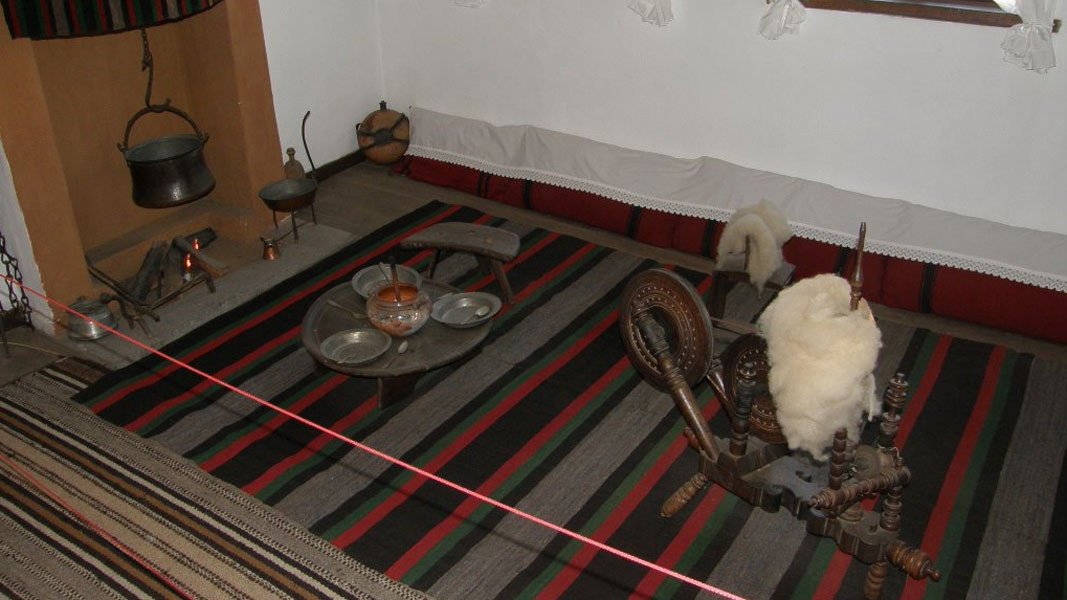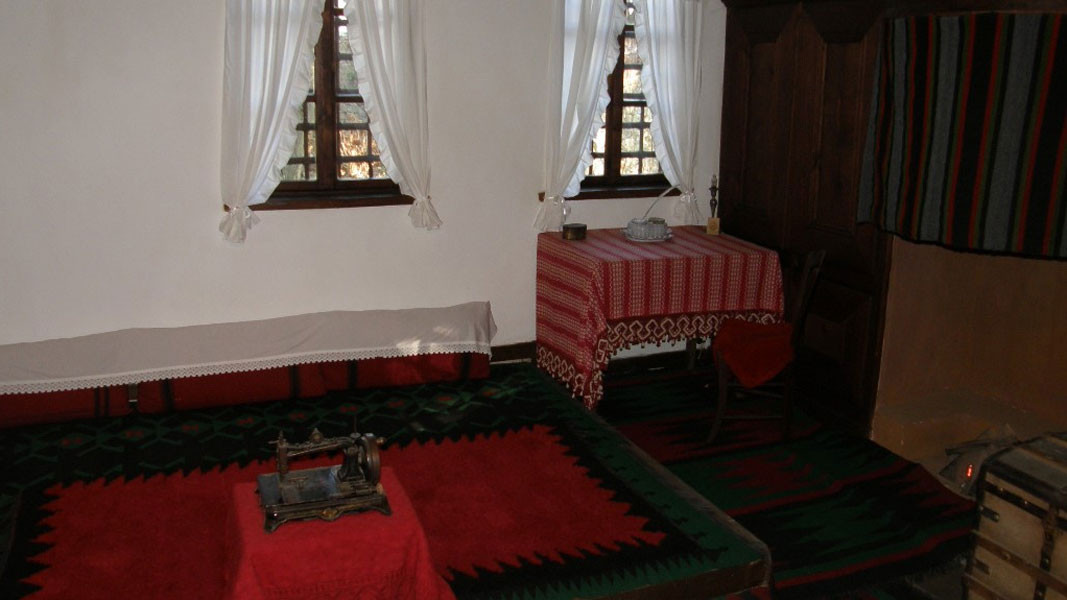On the Day of Hristo Botev and those who fell for the freedom of Bulgaria, we take you to his home in Kalofer, which was turned into a museum 75 years ago. The story of the house is interesting and it is part of a museum complex, declared a monument of culture, the head of the museum Asya Nikolova told Radio Bulgaria. Studies by artist Prof. Haralampi Tachev found that the Botev family actually lived in two houses:
“Hristo Botev was born in the building of the old school, which was situated near the church. The members of the restoration committee decided that the place there was inadequate for the construction of a museum. So they decided to restore the house Botev called his home and lived in for the longest time. This is a house of the mother of the revolutionary Ivanka Staykova Dryankova. Its official opening as a museum took place on June 2, 1944 and since then it has never closed its doors.

Unfortunately, items that belonged to the family are very few. Inside the house we see a spinning wheel and a sewing machine used by Ivanka. She was sewing to support her family because of her husband's illness and early death. Today, with the help of ethnographic materials, the family environment, where Botev grew up, has been recreated.”

On June 2, 1926, when Kalofer marked the 50th anniversary of the death of the revolutionary poet, the so-called "Botev Garden" was opened. It was created in the yard, presented to the inhabitants of the town for eternal times by Hristo Botev’s brother – Kiril Botev. The general's wish was to create a beautiful park with a monument to his brother. The first plate, outside the current memorial complex, on which the dates of birth and death of the poet were written (January 6, 1848 –June 2, 1876), was placed back then. In this way, the construction of the museum complex started.
The free spirit, the fierce protection of righteousness and readiness for sacrifice marked the life not only of Hristo Botev but also that of his brother. General Kiril Botev was a participant in three wars - the Serbian-Bulgarian War and the two Balkan wars, and his whole life, before and after the Liberation of Bulgaria, was dedicated to the homeland.
“He studied at Kalofer and taught for a while in the village of Golyamo Belovo,” Asya Nikolova says. “In the period when he and his other brother Stefan and grandmother Ivanka immigrated to Romania, Kiril Botev was also a teacher. He also participated in the revolutionary group led by Hristo Botev. Prior to the Milin Kamak battle in which Hristo Botev lost his life, Kiril Botev became lost with two more fighters, and this is what saved him. He then attempted to return to Romania, but was captured and convicted. At that time he was a minor and he was sentenced to 15 years of strict prison. After the Liberation (1878), Kiril started studying at the military school and devoted himself to the military career.”

People such as Hristo Botev and his brother, Gen. Kiril Botev, are an inspiring example for young people today. And while we often perceive freedom for granted, it is important to recognize its value and the sacrifices made by our ancestors. "Freedom also means great responsibility," Assya Nikolova says. “We should read more often Botev’s articles and letters and we would see our contemporary time and issues described in them.”
English: Alexander Markov
Photos: muzeibotev.comJune 11, 2007 - US President George W. Bush Jr. visits Sofia. According to protocol, the press conference he held for the media took place among the exhibits of the National Archaeological Museum. The official lunch for the guest was later held at the..
On November 10, 1989, a plenum of the Central Committee of the Bulgarian Communist Party ousted its General Secretary and Chairman of the State Council, Todor Zhivkov. This marked the symbolic beginning of the transition from a one-party system to..
Archaeologists have explored a necropolis in the Kavatsi area near Sozopol. The perimeter in which it is located is part of the history of Apollonia Pontica and is dated to the 4th century BC. "This is a site with interesting burials in which a nuance..
In the secular chronicles of post-liberation Bulgaria, Metropolitan Kliment of Tarnovo is known as Vasil Drumev – a notable writer and public figure, he..

+359 2 9336 661
